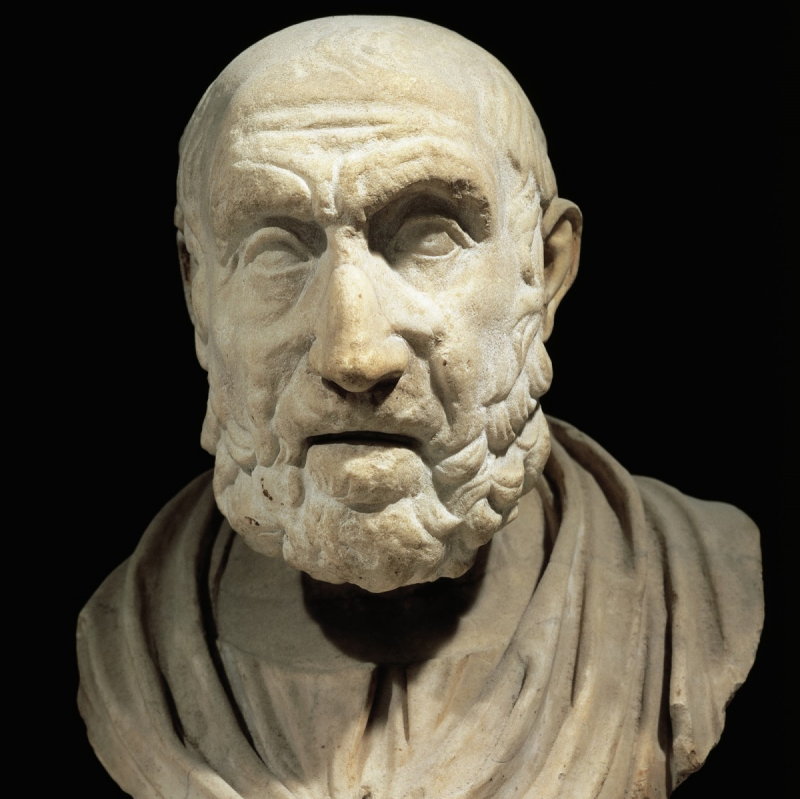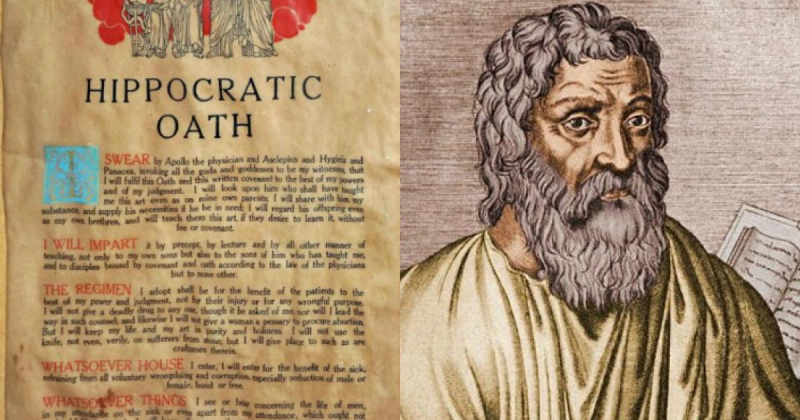Hippocrates
One of the most important people in ancient Greece, Hippocrates was unquestionably one of the first and most influential contributors in the development of medicine. He is sometimes referred to as the father of Western medicine because of his extraordinary contributions to early medical discoveries that served to establish standards for modern medicine. He developed the Hippocratic School of Medicine, which eventually led to the separation of medicine into its own discipline and transformed the way medicine was practiced in ancient Greece.
His actions helped medicine achieve the standing it does now, distinguishing it from other disciplines like philosophy and theurgy. He is also credited with being the first to say unequivocally that illnesses, contrary to popular belief in ancient times, were brought on by natural reasons rather than superstition or the wrath of the gods. Hippocrates had a significant influence on medicine, from the earliest reports of serious illnesses including lung cancer, cyanotic heart disease, and clubbed fingers (also known as Hippocratic fingers) through the ultimate professionalization of medicine.













